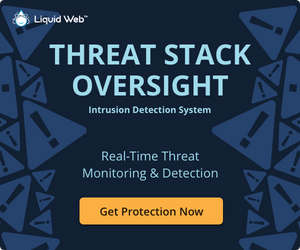6 Managed Service Provider Growth Trends for 2024
The proliferation of cloud technology, sophisticated security threats, shortage of specialized tech professionals, decreasing IT budgets, and the need for complex IT operations to drive business growth are causing both small businesses and large enterprises to outsource a wide range of short-term IT tasks and long-term strategic projects. But what are the top Managed Service Provider trends for 2024 that you need to capitalize on?
B2B research firm MarketsandMarkets estimates the global managed services market will grow from $223.0 billion in 2020 to $329.1 billion by 2025. While this is great news for you, evolving business needs are changing what and how you must sell to stay relevant.
Small businesses are partnering with MSPs that offer more sophisticated services than simple help desk support or email availability. Enterprise companies need an MSP partner with deep expertise that can help augment their in-house activities.
To not only remain relevant but keep ahead of changing client demands, you must enhance your service offering and capabilities.
Let’s explore six Managed Service Provider trends for 2024.

1. XaaS (Everything-as-a-Service)
Businesses understand that to meet today’s challenges and achieve future goals, a digital transformation is required. Unfortunately, most do not have the financial or human resources to implement a solution on their own.
As a result, MSPs are in the perfect position to support the growing demand.
Everything-as-a-Service enables you to expand services beyond low-margin SaaS applications and end-user tech support to more high-value infrastructure integration, fully managed cloud solutions, 24x7 proactive network monitoring, and company-wide risk management. Selling IT solutions on value rather than on price not only enables you to increase your margin but also provides you with a competitive differentiator while increasing the stickiness of your services.
2. Limited IT Talent and Lack of Specialization
As business and technology converge and high-touch, multi-layered IT solutions are required, a lack of in-house IT professionals with sufficient expertise will drive companies to MSPs with specialized talent. Even large enterprises with their own IT teams don’t have the budgets to hire additional staff, but they are still tasked with moving the company's operations forward in the most efficient and cost-effective manner.
The deep technology expertise in security and custom cloud implementations that you already possess enables you to provide comprehensive technical know-how to small businesses with a limited IT staff. It also allows you to extend specialized expertise to larger enterprises looking to augment their in-house IT team with deeper knowledge or additional hands, so their staff can focus on more strategic projects.
3. AWS, Azure, and Google Public Cloud Costs and Complexity
The public cloud’s operating expense vs capital expense model and the idea that no technical expertise or additional personnel are needed to realize cloud benefits have been two key factors that propelled cloud usage among businesses of all sizes.
These same businesses now realize that the reality is quite different from the original marketing message. Uncertainty over which cloud services are needed and the inability to accurately assess if they are paying excessive usage costs are causing businesses to seek out an MSP to help control costs, increase efficiencies, and improve business outcomes.
As an MSP, you can act as an impartial third party, providing an unbiased assessment of a business’ needs, purchasing and managing only the resources they need, providing real-time monitoring and analytics, and ensuring they stay within budget.
4. Internet of Things (IoT)
The Internet of Things (IoT) is now mainstream. Connected appliances, medical devices, planes, streetlights, and vending machines are just a few examples of what has already been connected, and more IoT-connected devices come online every day.
This “Internet of Everything” culture is driving the need for increasingly complex cloud environments. Sophisticated multi-cloud and hybrid cloud infrastructure needs call for an IoT and cloud integration team knowledgeable in the development, deployment, and management of new IoT infrastructures.
These complex environments require continuous monitoring, maintenance, and management by a technology partner skilled in connected IT environments such as a Managed Service Provider. Who is more skilled than an MSP team of engineering professionals? The addition of IoT-specific specialization to an MSP’s suite of remote monitoring and management services will enable you to grab your share of the growing IoT market.
5. MSP Consolidation and Automation
The challenges facing businesses in 2020 required many to reassess their path forward and consider M&A activities including traditional acquisitions, partnerships, competitive alliances, joint ventures, and other more out-of-the-box growth alternatives.
Mergers and acquisitions in the MSP community are going strong as many large MSPs interested in geographic or industry expansion acquire smaller providers. Small MSPs with a goal to offer a full suite of advanced business are establishing strategic alliances with other MSPs who provide complimentary services or have additional expertise in security or another area of specialization.
While expansion, service differentiation, and deep technical expertise can be developed in-house over time, M&A opportunities enable you to scale services more quickly, attain expertise more cost-effectively, increase margins, and enter new markets with a competitive advantage.
But an M&A strategy is just the first step for MSPs who choose this growth strategy. Effective integration and automation of business operations will further drive efficient processes and competitive advantage.
Automation enables you to scale in two ways:
- Improved internal operations means your employees can now focus on company growth and expanded service portfolios, quickly and easily scaling sales volume and capacity, and implementing most strategic initiatives.
- The use of automated billing management and data processing, reporting, and analysis resources will help ensure customer usage is measured accurately and billed accordingly.
Automation and IT integration across all departments improve efficiencies, enabling employees to automate day-to-day manual tasks and focus their time and effort on completing high-value, revenue-generating projects for your clients.
6. From Traditional MSP to MSSP
While the focus on daily operations will not disappear, companies also require an MSP to keep them secure. Security solutions are evolving from traditional remote monitoring services and firewall installation to the need for a proactive, business-focused, and consultative approach to MSP security sales.
As an MSP, you are an expert at proactively securing your own infrastructure, devices, employees, and clients from the latest cyber-attack and eliminating risk as it is uncovered. As the demand for this high level of protection is required by all businesses, you can utilize your engineering team’s deep expertise to deliver advanced, high-margin security services.
Managed Service Providers Partner With Liquid Web
Your clients’ business and IT needs are evolving, requiring you to transform your Managed Service Provider business more effectively to meet the market trends. A partnership with Liquid Web is the perfect differentiator – enabling you to deliver public cloud or private cloud, infrastructure management, security, and network transparency to customers while decreasing the cost and time-consuming requirements of in-house MSP expansion. Start delivering impactful and in-demand services to your customers today by partnering with Liquid Web.
If you’d like to learn more about how we can help you open the door to new business growth opportunities, contact our Liquid Web team.

Kelly Goolsby
Kelly has worked in the hosting industry for nearly 16 years and loves seeing clients use new technologies to build businesses and solve problems. His roles in technology have included all facets of Sales and, more recently, Solution Architecture, Technical Sales, and Sales Training. Kelly really loves having a hand in developing new products and helping clients learn how to use them.
Keep up to date with the latest Hosting news.



